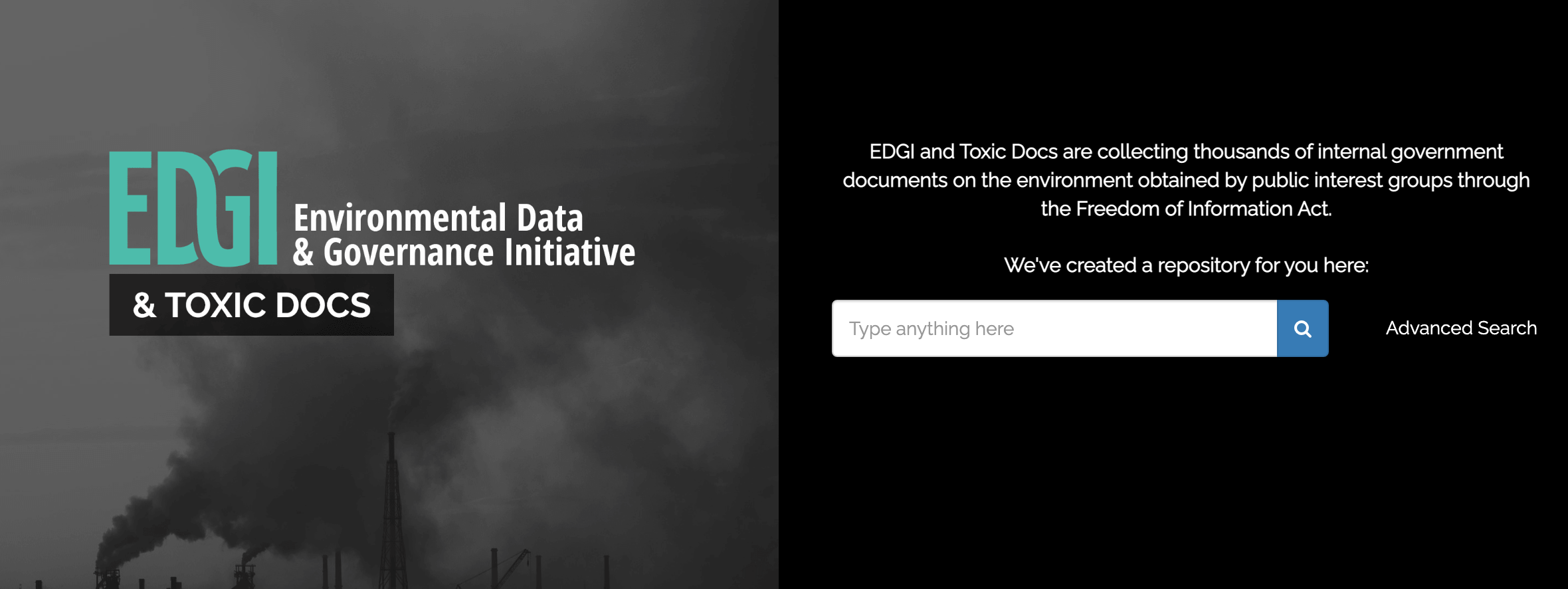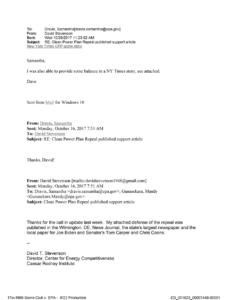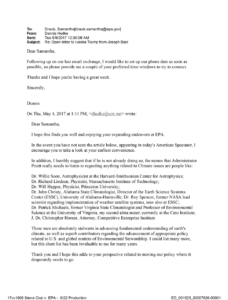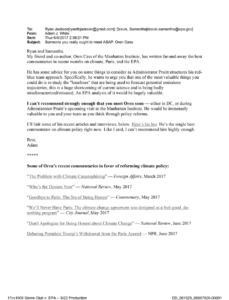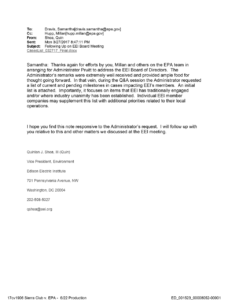EDGIFOIA, an initiative of EDGI, Toxic Docs, Sierra Club, and other groups, pools documents from Freedom of Information Act requests into an easily searchable repository.
By Merlin Chowkwanyun and Chris Sellers
On July 27th at 1PM EST, Merlin Chowkwanyun of Toxic Docs, Chris Sellers of the Environmental Data and Governance Initiative, and Elena Saxonhouse of the Sierra Club will publicly debut a cache of internal documents from the Trump administration detailing what it did to hamper the efficacy of the Environmental Protection Agency. It’s the latest addition to a project we’re calling EDGIFOIA, an initiative of EDGI, Toxic Docs, Sierra Club, and other environmental and open government groups to pool documents from Freedom of Information Act (FOIA) requests over the past few years into a single, easily searchable repository. The repository includes documents revealing behind-the-scenes maneuvering of Trump’s first EPA administrator, deliberations that led to the dismantling of the Clean Power Plan, and the many firms that took advantage of the agency’s receptiveness to industry.
This latest trove of documents adds to the batch made available when the repository first opened to the public in December 2020, upon the 50th anniversary of EPA’s founding. This venture builds on Freedom of Information Act and state-level sunshine laws that enable organizations to request documents on the inner workings of environmental agencies. Yet FOIA’d documents are often released in thousand-page data dumps with little regard for ease of use or broader accessibility. Through a portal on EDGI’s “A People’s EPA” website, EDGIFOIA collects a growing number of these documents in one place and makes them eminently more searchable than current FOIA portals allow.
EDGIFOIA seeks to provide a new model for how agencies can make records genuinely accessible. This work is inspired by initiatives like the National Security Archive at George Washington University, which for decades has unearthed declassified material from national security agencies, helping the public learn about the history of foreign policy in the United States. By pulling together FOIA’d environmental documents from Sierra Club and other organizations we aim to create a public resource to inform journalists, activists, researchers, and others wishing to understand how our nation’s environmental governance works.
This work was facilitated by the efforts of the Sierra Club’s Elena Saxonhouse and David Abell, who convened the Environmental FOIA Coordinating Group of 20 organizations in early 2017 to discuss and coordinate each others’ FOIA requests. The Sierra Club’s own FOIA’d documents, covering events from 2017 to 2018, make up most of the 12,000 documents. We’re also thankful to the Wilderness Society, Stuart Wilcox of Environmental Advocates, and Austin Evers of American Oversight, whose FOIA’d documents make up another 250 documents of the new batch.
Anyone with environmentally-themed FOIA collections, whether NGOs or journalists or researchers, are encouraged to reach out to us (Merlin Chowkwanyun, mc2028 at columbia.edu, and Chris Sellers, christopher.sellers at stonybrook.edu) to learn how to contribute your FOIA’d documents to the repository.
Over the next few months, we’ll be adding more materials and tools beyond the full-text search, including a named entity recognizer–which pries out common organizations and names–and a correspondence networker that maps out common “From:” and “To:” paths in emails.
How to start? Go to here or to here (edgifoia.toxicdocs.org) and just type in stuff. Some suggestions: “Scott Pruitt,” “clean power plan” “climate change” rules, Trump, asbestos–you get the picture.
Here are a few documents you may find of interest. Stay tuned; we’ll have more entries spotlighting additional documents soon.
- A pro-energy think tank staffer writes to the White House to indicate how they tried to re-frame the administration’s repeal of the Obama-era Clean Power Plan:
- A Republican legislator writes to the White House with a list of dissident scientists who reject the consensus that climate change is anthropogenic:
- A staffer at the American Enterprise Institute suggests that EPA administrators meet with a member of the Manhattan Institute, which has downplayed the sources of climate change and its seriousness:
- A staffer with the Edison Electric Institute, a trade association for electric companies, provides the White House–upon request–with a list of pending impact litigation to weaken the EPA. One of them is West Virginia vs. EPA, recently decided by the Supreme Court:
To learn more about these documents and learn to search EDGIFOIA for other information from federal environmental agencies, register to attend the event on July 27th, 1PM Eastern.

